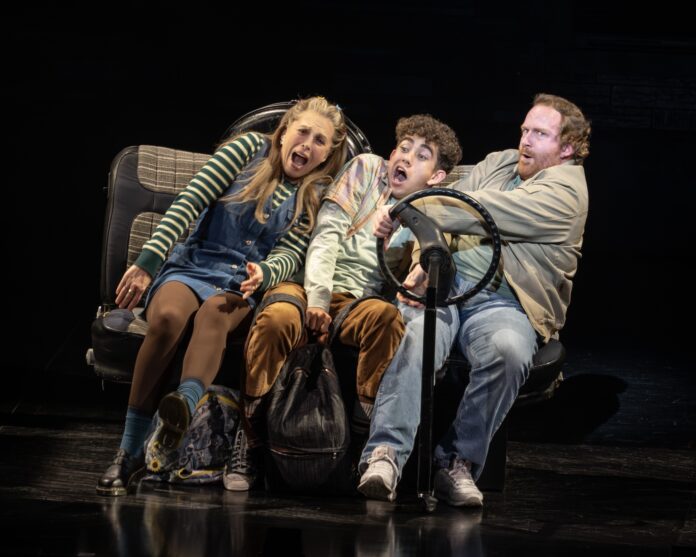I didn’t plan on reviewing two plays about death one week after the election. Watching the results sure felt like the world was ending. I hope everyone’s had a chance to digest and recover from the initial impact. I’ve done so with pro-Palestine protests (recording this speech by fellow 48 Hills-er Tiny Gray Garcia) and with comments from intelligent minds reminding us that these “winners” are all idiots serving a glutton who may well have keel over 15 minutes after being sworn in.
Nevertheless, they’re bound to do harm. I’m personally concerned about the inevitable cuts to arts and media funding. And with former theatre patrons reportedly staying away due to the still-ongoing COVID pandemic, having RFK Jr. calling shots means the performing arts world might get cautious about content and the safety of its audiences.
Where am I going with this? I’m logically assessing the situation. I’m a Black bisexual progressive artist and journalist in San Francisco—all things the incoming administration hates. Yet, I’m proud of and am willing to fight for those things. I loved protesting for Palestine the last few days because it put me among folks who’ve been fighting as long as I have, and longer. It’s a reminder that despair is how the bastards win. It reminds me that we proletariat have the real power.
I hope everyone reading this feels that. I hope you’ll support 48 Hills’ speaking truth-to-power in the days, months, years to come. And I hope to (safely) see you in this unique, weird, and wonderful city that conformists hate.
In short: We’re not dead yet.
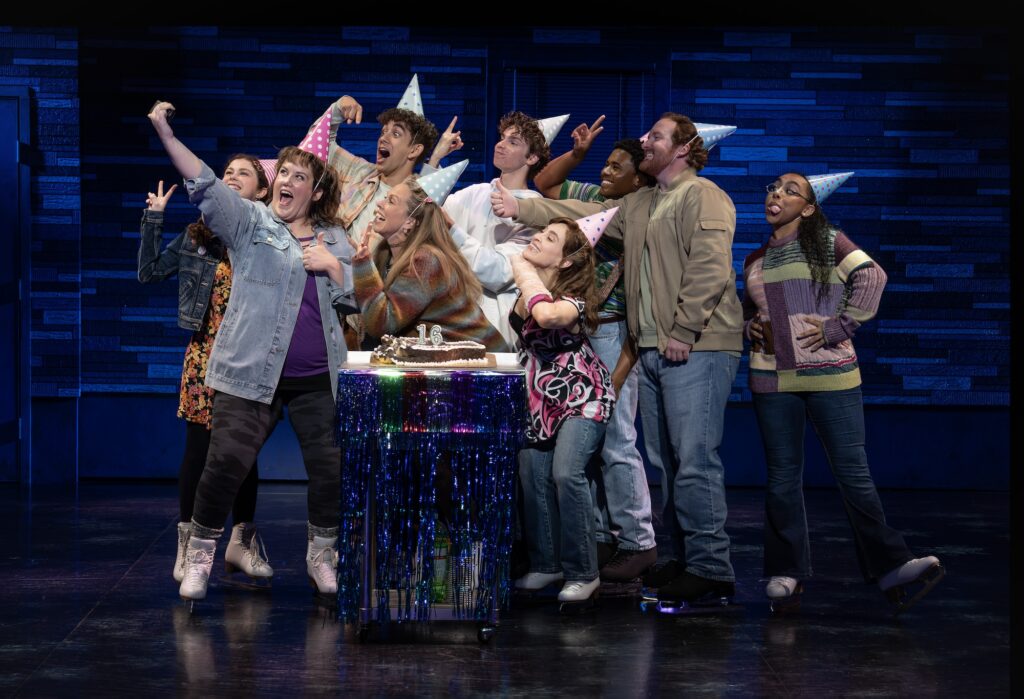
KIMBERLY AKIMBO AT CURRAN THEATRE
I haven’t been to The Curran since 2019. That’s when I saw Joe Robertson and Joe Murphy’s The Jungle and that wizard boy show by the transphobe lady. Both were enjoyable and did amazing things with the theatre’s architecture. Yet even before they opened, incomparable culture writer Nicole Gluckstern began asking the question other local critics would later echo: What’s the Curran’s future? Would it be a grand stage for bold theatre or an inevitable addition to the BroadwaySF chain that its owner, Carole Shorenstein Hays, wanted to avoid?
It was the latter. Sure, the Curran showed touring shows before, but they weren’t trying to match BroadwaySF (formerly “SHN” before Shorenstein Hays left them) in pandering to Broadway-lovers. The modern Curran is very much part of the BroadwaySF machine, serving up easily-digestible mainstream fare in the City by the Bay; whichever ones aren’t already booked at the Orpheum or Golden Gate.
That’s where Kimberly Akimbo (through December 1 at the Curran, SF) comes in. It’s about as “basic” a musical as one can expect on a mainstream theatre, with paint-by-numbers songs and broadly stereotypical characters. I went to opening night knowing absolutely nothing about this acclaimed Tony-winner, let alone that it’s based on an earlier play also written by David Lindsay-Abaire. So, seeing an actress in her 40s (Carolee Carmello) playing a teen raised an eyebrow, thought it’s later explained in the narrative. Still, it wouldn’t have surprised me if it was just one of those “meh, whatever” casting decisions made by touring shows.
The titular Kimberly has a condition causing her body to age prematurely. With her 16th birthday coming up, Kimberly is facing down the age in which people with her condition usually die. As such, the Jersey girl wants to live it up, writing a letter to the Make-A-Wish Foundation for a few big gifts, when what she really wants is for her white trash parents, clumsy alcoholic Buddy and pregnant Pattie (Jim Hogan and Dana Steingold, respectively), to be normal. Easier said than done. Things are made no easier by the sudden reappearance of Pattie’s even-trashier sister Debra (Emily Koch).
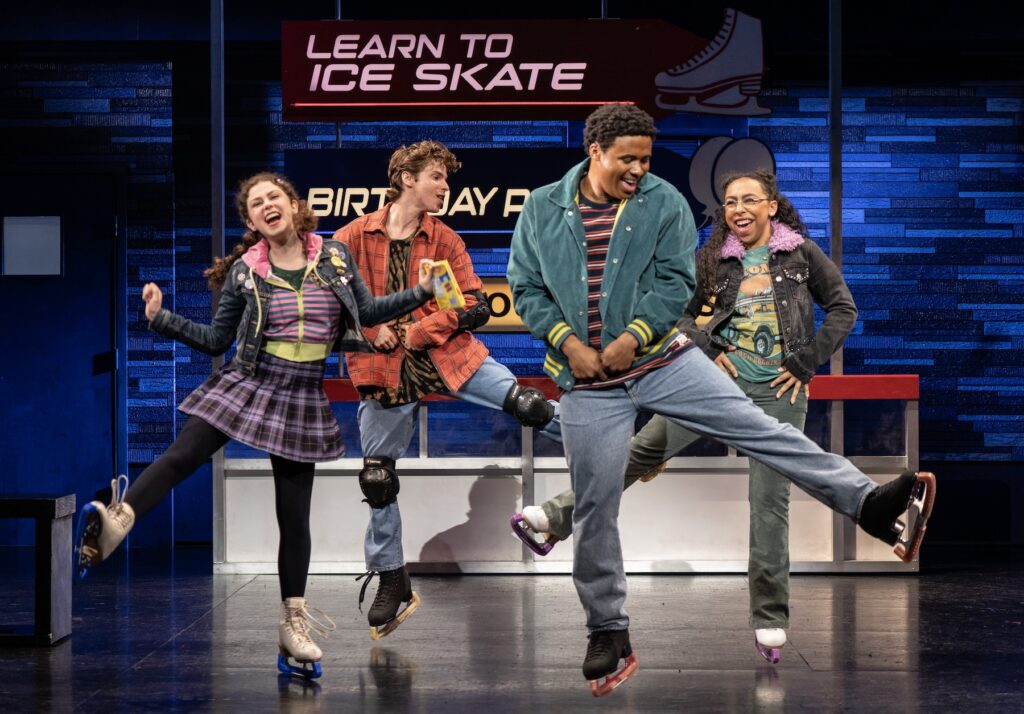
One has to wonder how Lindsay-Abaire’s original play fared on, one assumes, a more intimate stage, because this story is all wrong for a grand auditorium. It doesn’t need to be told in a black box, but the specifics of the few characters are such that a limited venue would do wonders in making the story land better. Of course, that wouldn’t solve the cartoonish lens through which the writer views those characters.
Perhaps some of this is due to bad direction from Jessica Stone (Jim Hogan is particularly grating as Buddy), but Kimberly’s would-be love interest, Seth (Miguel Gil), is the sort of “nerd” performance one writes when the only nerds they’ve ever seen are the Revenge of… variety, not actual human beings. Every character is a scenery-chewing cipher meant to play to the balcony seats before they do a heel-turn and have a dramatic moment. It’s insulting to the audience, even when the occasional funny line does get through. (As I write this, I can’t recall any.)
For the Curran itself, their HVAC system is certainly impressive enough for a visit. Despite a near-full opening night house, the CO² readings on my Aranet4 hovered around 740ppm for most of the two-act show, at one point dropping down to 550ppm, and ending at 758ppm.
The Curran remains an SF theatre treasure, and it’s always great to see its doors open. Soon, the beloved “Golden Girls Christmas Episodes” drag show will open, for more of a local, if still broad, touch. Yet longtime fans will yearn for another evening with Courtney Love over the rather trite material of a show like Kimberly Akimbo, award-winning though it may be.
KIMBERLY AKIMBO runs through December 1 at the Curran Theatre, SF. Tickets and further info here.
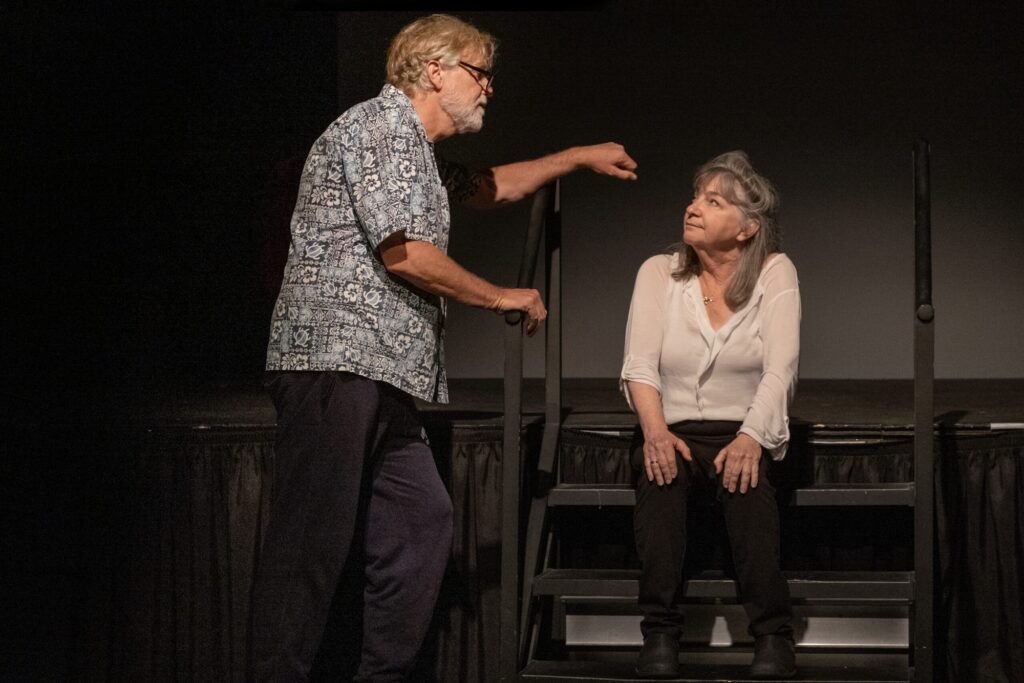
180 DAYS. TO DIE. TO LIVE AT THE MARSH-BERKELEY
The last show I saw at The Marsh (SF) was purposefully remounted to ask how bodily autonomy would play out in the aftermath of the election, specifically in regard to reproductive rights. Though not specified, similar questions hang over this Berkeley show by The Marsh’s founder. Yet, whereas the former show tackled the debate of where life begins, the latter is all about where it ends and who gets a say in it.
Stephanie Weisman’s 180 Days. To Die. To Live. (through November 24 at The Marsh-Berkeley) is a theatrical memoir recounting the recent past, when she assisted her late husband Richard (Josiah Polhemus) in his choice to medically end his life—legal in CA since 2016—after a long, painful fight with pancreatic cancer.
You wouldn’t know it from that description, but this is a play about life. There’s a long flashback sequence in which Weisman (playing herself) and Richard are dining in Berkeley, with him expected to propose to her. There’s a blackout in SF and he’s called in to run the generator at the SF Marsh. To Weisman’s consternation, they do what needs to be done before having an informal proposal parked outside of the theatre.
For anyone who’s ever worked in theatre, the scene hits every check mark as to how it invades every corner of your life. It also illustrates how you wind up loving your fellow theatre artists due to unrestrained devotion for one another. This funny, intimate scene is the cornerstone to Weisman illustrating what and who she lost when she eventually let Richard go. Other scenes are funny and touching (Darragh plays several characters, including a pharmacist trying to explain the duffel bag’s-worth of medications Richard is expected to take), yet this is the scene that likely hook everyone because it speaks true on a whisper level rather than a shout; sort of like the proposal itself.
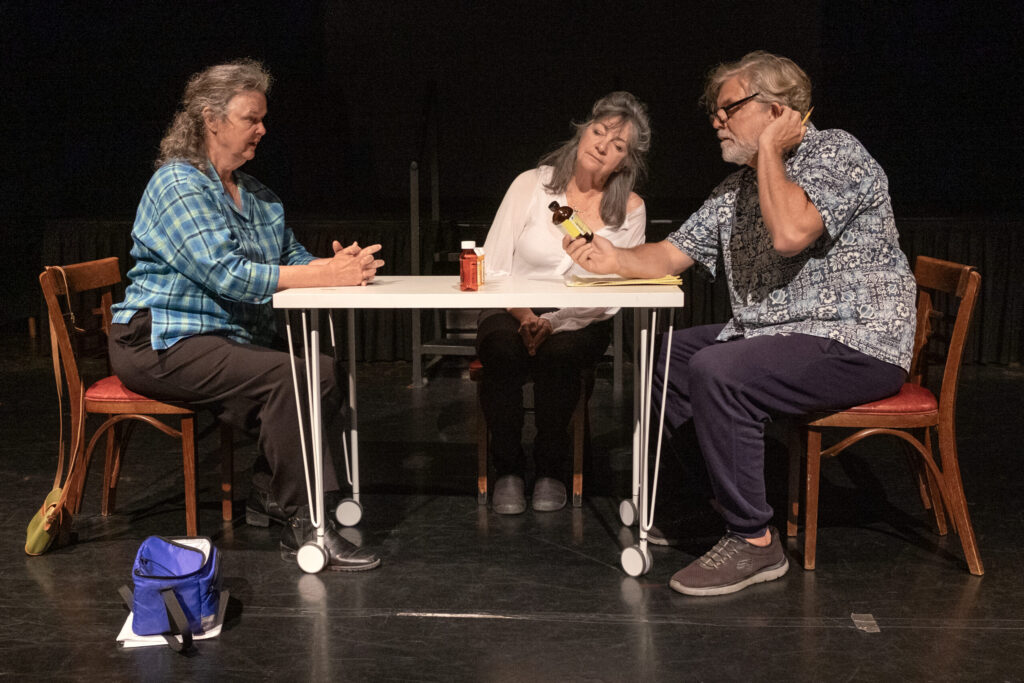
If anything holds the play back, it’s probably the low energy of the two lead actors. Their line readings can often feel just like recitations, and the physical nature of the role of Richard—falling to ground in pain—is clearly done in a way considering Polhemus’ safety (which should always be the top concern), but is rehearsed to the point that it feels inorganic. It’s Darragh who delivers the show’s best performance/s as the variety of characters who come in-and-out of Stephanie and Richard’s life as he nears the end, including a former Marsh employee who reconnects with Weisman through similar a tragedy.
Given that the final years depicted are set “during the pandemic” (which hasn’t ended), it was odd to see none of the characters wearing masks, even around people with serious medical conditions. There was also a dearth of masks in the Berkeley Marsh on opening night, but the hour-long show wasn’t too taxing on the flow of air. CO² readings on my Aranet4 peaked at 920ppm by the end.
When I interviewed Weisman about the show earlier this year, she said “Projects and ideas come to me based on what seems to be needed at the time. Basically organically.” Uneven performances notwithstanding, one senses a catharsis in 180 Days. To Die. To Live.. It feels like a show she needed to make, even though it’s about people whose names aren’t widely-known. But it’s the specific stories we tell a select few that wind up resonating with more people than you’d guess.
180 DAYS. TO DIE. TO LIVE. Runs through November 24 at The Marsh-Berkeley. Tickets and further info here.


